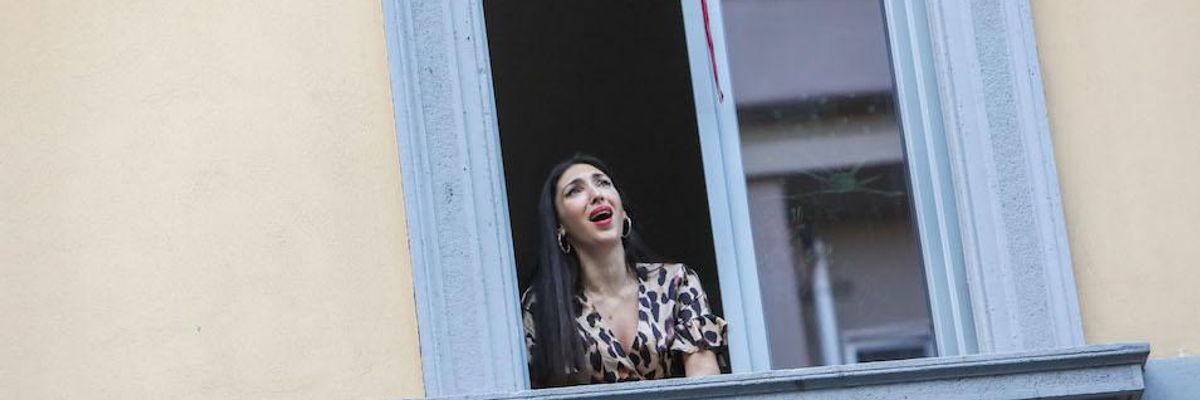Italians under lockdown due to the coronavirus outbreak crisis have inspired people around the world by singing and creating music together from balconies despite not being able to leave their homes.
A montage video showing Italians serenading one another in high rise apartment buildings and playing music together was "a kind of triumph of spirit," as one Italy-centric Twitter account put it on Friday.
Videos have poured in from across Italy:
Similar displays took place in Lebanon:
And in Spain, people took to balconies to clap and sing together:
In January in the Chinese city of Wuhan, where the outbreak is believed to have begun, residents chanted "jiayou," or "keep up the fight," for the city and its people.
Spanish people under lockdown have also taken time every day to celebrate the efforts of health professionals in the country, as Chef Jose Andres shared on social media:
The unprecedented nature and threat of the coronavirus outbreak has led to "social distancing," or a self-imposed quarantine, in most countries in the world in order to slow the rate of infection. But such radical changes to everyday life can come with consequences to one's mental health and immune system, as the University of Washington's Center for the Science of Social Connection director Jonathan Kanter and university PhD psychology student Adam Kuczynski noted on Monday in an article for The Conversation.
"In times of stress and illness, being deprived of social connection can create more stress and illness," Kanter and Kucynski wrote.
By reaching out to one another with song and music, Italians--and others around the world--are seeking out human connection.
